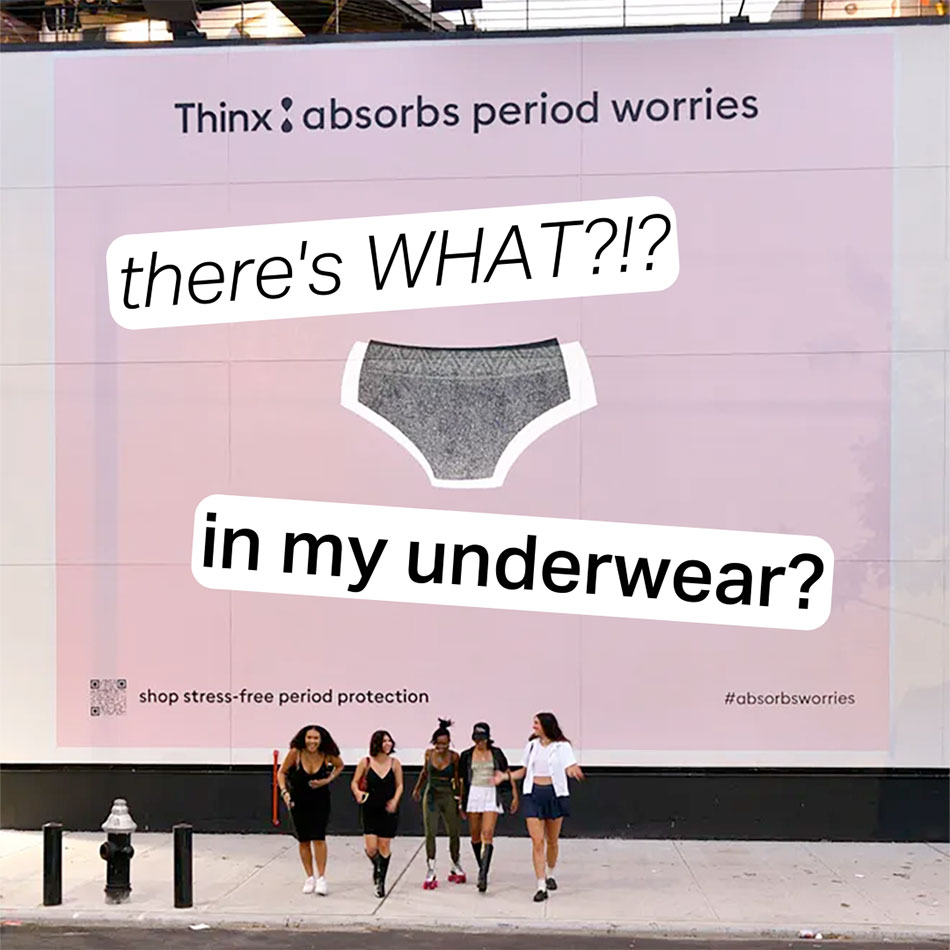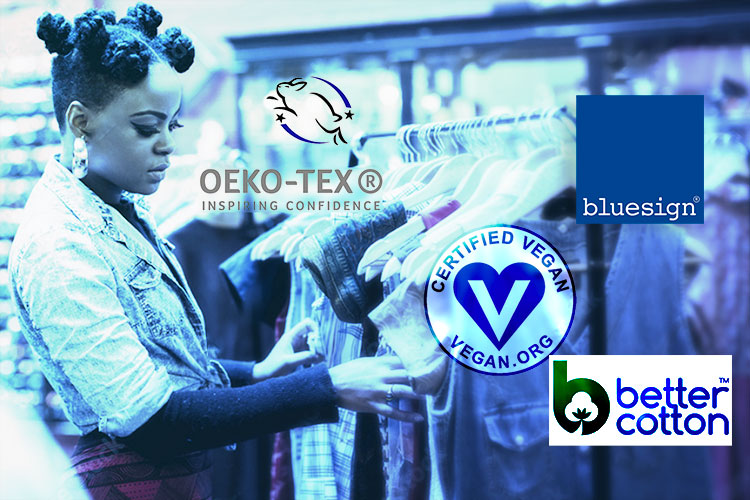
“Forever Chemicals” were found in Thinx underwear. And that’s not the only place you’ll find them.
November 2020 saw the New York-based brand, known for its menstrual hygiene products, hit with at least three lawsuits regarding its “organic, sustainable, non-toxic” washable undergarments. Allegations arose that these contained potentially harmful “forever chemicals.” Aka PFAs
How Did We Find Out About Forever Chemicals in Clothes?
The reality is, this has been known in a general way for a long time and we’ve written about the problem with synthetic clothing before. But the whole thing with THiNX was news to us.
Jessian Choy, a write at the Sierra Club, wrote an article in 2020 where she shared her concerns about how “organic” period underwear actually were. She mailed Thinx along with Lunapads to a nuclear scientist, Dr. Graham Peaslee who had previously done research on PFAS in fast-food wrappers.
According to Choy’s article:
My Thinx “organic” brief and “organic” BTWN Shorty underwear for teens had high levels of per- and polyfluoroalkyl substances (PFAS), especially on the inside layers of the crotch. Some PFAS are associated with cancer, decreased immune response to vaccines, decreased fertility, and more. Exposure to PFAS at even the lowest concentrations has been shown to harm human health. The crotch in my underwear had 3,264 parts per million (ppm), and the one for teens had 2,053 ppm, according to Peaslee’s particle induced gamma ray emission (PIGE) spectroscopy test. That’s high enough to suggest they were intentionally manufactured with PFAS.
PFAS never degrade. In one test, the chemicals migrated from waterproof textiles for adults and babies into simulated spit and sweat, and laundry wash water. PFAS are not what I want touching one of the most sensitive and absorbent parts of the body.
(On a brighter note, The Lunapads did not contain chemicals!)
Thinx denies all accusations and insists they have not acted unlawfully. Talks began in October 2021, and in June 2022 they agreed to pay up to $5 million to settle the lawsuit. This is for customers who bought Cotton Brief, Cotton Bikini, Cotton Thong, Sport, Hiphugger, Hi-Waist, Boyshort, French Cut, Cheeky and Thong styles between November 12 2016 and November 2022.
The company has promised to review its production to ensure no PFAS are used, get suppliers to sign an agreement, and include details about anti-microbial treatments. You can now request a cash refund for up to three purchases until April 12, 2023.
How did we get to a place where our clothing can be so harmful?
Beginning in the ’90s and 2000s, clothing manufacturing was increasingly moved overseas. This market trend has produced a host of problems in the fashion industry, from unethical treatment of garment workers, to the lack of regulations surrounding chemicals in clothing production.
These incredibly hazardous “forever chemicals” are released into the environment from factories, and have been known to turn rivers pink with their potency (Deeley, Rachel). Their damage goes beyond our planet, as PFAs are known to cause “hormone disruption, reduced immune response, changes to liver function, thyroid disease, higher rates of infertility and certain cancers” (Chua, Jasmin Malik).
In the US, there are huge regulatory gaps in regards to chemicals. Often, these are proposed on a state-by-state basis, and many of the warning labels have become meaningless to consumers. In California, there is Prop 65, legislation that demands transparency surrounding consumer products, warning of the potential exposure to carcinogens; however, consumers are often overwhelmed by information and disregard these labels. And for those in other states, there is little to no public information placed on consumer goods regarding PFAS.
Therefore, we have to take things into our own hands and become knowledgeable consumers!
Here’s how to shop responsibly and avoid “forever chemicals”
- Avoid water-resistant, stain resistant, or performance based materials.
- Opt for 100% natural materials, and specifically white cotton underwear. Undyed, natural materials are less likely to host PFAS. This is also great for vulvar health!
- Search for GOTS certifications.
- Avoid fast-fashion brands. There is often little oversight to the production.
- Check out https://pfascentral.org/pfas-free-products/ for a list of products that are free of PFAS.
- Support brands that have phased out PFAS or are promising to eliminate their use. These include: Levi’s, Keen Footwear, and Deckers Brands.
Brands that will soon eliminate PFAS: American Eagle, Ralph Lauren, Calvin Klein, Tommy Hilfiger, Gap Inc., Speedo, and Patagonia.
For more info on toxic clothing, check out our other articles:
Fossil-free Activewear: How to go from oil-based to natural fiber
It’s Time to End Our Toxic Love Affair with Synthetic Clothing
Other Sources:
Chua, Jasmin Malik. “Amazon, Rei, Lululemon Targeted over Safety, Cancer Chemicals and Climate.” Sourcing Journal. Sourcing Journal, September 22, 2022. https://sourcingjournal.com/sustainability/sustainability-news/amazon-teamsters-safety-protestors-rei-pfas-cancer-chemicals-lululemon-coal-374639/.
Deeley, Rachel. “Why Fashion Still Uses Toxic ‘Forever Chemicals’.” The Business of Fashion. The Business of Fashion, November 23, 2022. https://www.businessoffashion.com/articles/sustainability/pfas-pfc-toxic-forever-chemicals-gore-tex-detox-fashion-sustainability-regulation/.
–Olivia Baba + Katya Moorman
Related Articles
Our Favorite Fast Fashion Brands to AVOID
Our Shopping Guide for Sustainable and Ethical Underwear
Why You Want All Natural Ingredients in Your Beauty Regime
What is regenerative fashion? Here are our fave brands
Want to Shop Ethically? 5 Labels to Know






